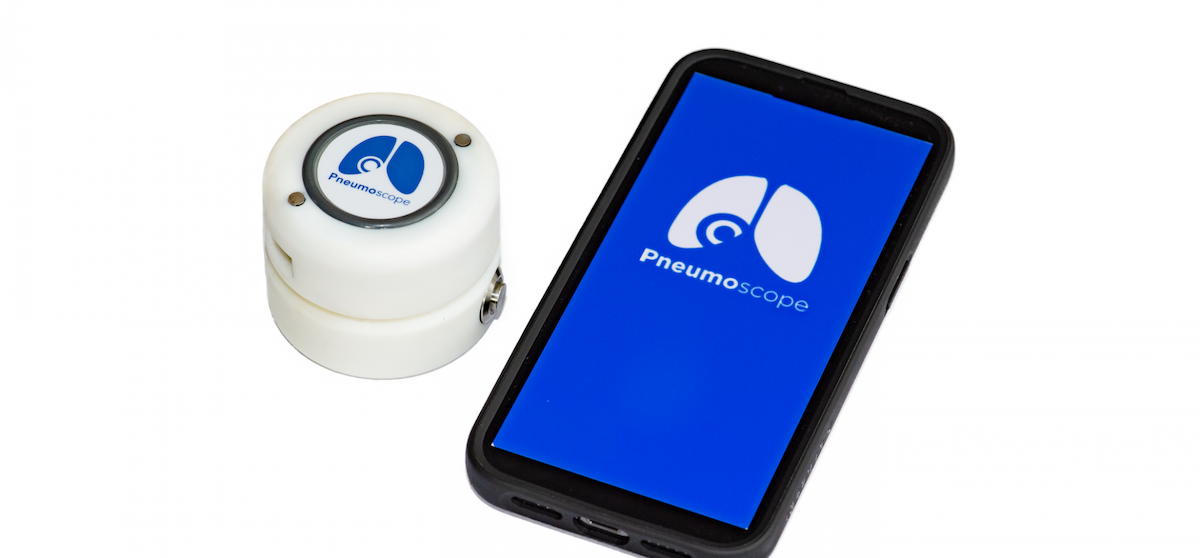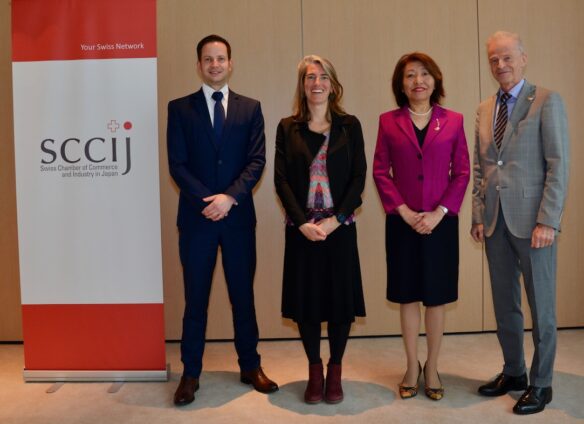Tokyo (SCCIJ) – A Swiss smart stethoscope designed to help diagnose respiratory diseases remotely could soon shake up the medical sector. This rapid, inexpensive, and non-invasive screening device does not require any specific medical knowledge. Therefore, it can also be used by nurses and patients.

A Swiss company is developing a “smart” stethoscope (© Onescope).
A device for “amateurs”
Every year, 2.5 million people worldwide die from pneumonia. Another respiratory condition – asthma – is the most common chronic disease among children. The effective diagnosis and management of respiratory diseases are therefore hugely important, as we all saw during the deadly COVID-19 pandemic. Currently, diagnosis is made by auscultation of the lungs with a stethoscope and functional tests, including listening to breathing. Only a doctor can perform these tests, as they require specialist expertise.
Intending to transform respiratory care, the University Hospitals of Geneva in partnership with the Swiss Federal Institute of Technology Lausanne (EPFL) and Terre des Hommes in 2018 created a research group. Its objective is to develop an intelligent digital device combining a stethoscope, a pulse oximeter, and a thermometer – powered by AI.
This “Pneumoscope” does not require any specific medical knowledge so it can also be used by nurses or patients. At the same time, it will become easier for healthcare professionals to provide an accurate diagnosis. The prototype is now close to completion and just needs to complete the final technical and clinical validation phase to be market-ready.
Acoustic signals
Primarily intended for detecting asthma attacks and pneumonia, the stethoscope is also useful for COVID-19 patients. The smart stethoscope records lung auscultation sounds and recognizes in real time acoustic signatures of respiratory diseases thanks to artificial intelligence algorithms.
The information is transmitted through a user-friendly interface on a smartphone or tablet to aid diagnosis of respiratory symptoms and assess the risk to the patient. The AI algorithms were developed at EPFL using a clinical database of over 100,000 lung sounds from adults and children with COVID-19, pneumonia, asthma, etc.
The small box was developed in collaboration with several teams of researchers from Geneva’s University of Applied Engineering Sciences. The low-power electronics processes the signals from the acoustic sensors, stores them and transmits them wirelessly to a smartphone. Another algorithm separates breathing sounds from heart signals. Additional temperature and oximetry sensors were added for a refined diagnosis.
Text: © Swiss.tech (Editing by SCCIJ)





























